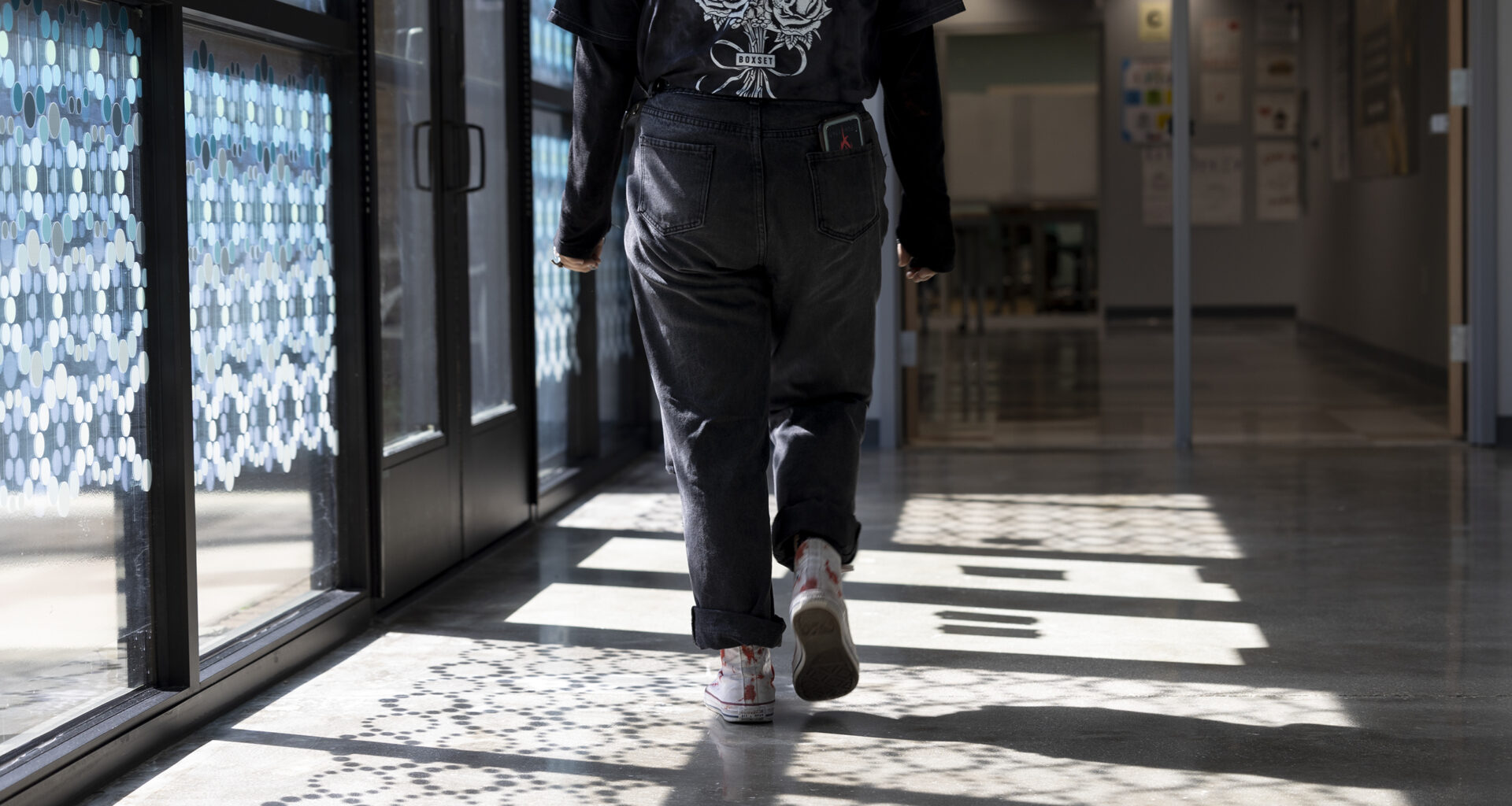Suspending the state’s homeless and youngest students will soon be a lot easier this September, but some San Antonio districts are still facing the consequences for breaking the old law that had largely banned the practice.
House Bill 6, passed during the most recent legislative session, makes it easier to issue out-of-school suspensions for students below the third grade and students considered homeless under the McKinney-Vento Act — federal legislation passed in 1987 that requires schools to provide transportation and enrollment services to homeless students.
HB 6 effectively overturns a 2019 state law that made it illegal for schools to suspend students experiencing homelessness except in extreme cases involving drugs, alcohol, weapons or violence.
Co-authored by Bexar County representatives Mark Dorazio (R-San Antonio), Marc LaHood (R-San Antonio), Ray Lopez (D-San Antonio) and John Lujan (R-San Antonio), the new legislation is meant to quell behavior issues after the pandemic.
“The bill expands teachers’ ability to maintain order, safeguard student safety and uphold academic integrity in their classrooms. There is only a minor portion of the bill that relates to homeless students,” Dorazio told the Report back in March, before the bill was signed into law.
All members of the Bexar County Coalition voted in favor of the bill except for representatives Diego Bernal (D-San Antonio) and Josey Garcia (D-San Antonio).
Despite the 2019 law, suspension rates in Texas remained the same in later years, and several San Antonio schools probably broke the law by suspending hundreds of homeless students on minor offenses.
School districts still facing consequences
That state law will become irrelevant once the next school year begins, but school districts found responsible for breaking it previously are still placed under “corrective action plans” from the Texas Education Agency.
Currently, East Central ISD and Northside ISD are under corrective action plans for wrongly suspending Mckinney-Vento students during the 2023-24 school cycle.
However, education experts say there’s a lot of gray when determining if a student falls under Mckinney-Vento or not. Definitions of student homelessness can change from campus to campus, and sometimes even from administrator to administrator, leading to coding issues that misinterpret a student’s living situation.
McKinney-Vento defines homelessness as youth who lack a fixed, regular and adequate nighttime residence, so a student would likely meet the criteria if they lived in a motel, a car or were staying with others due to economic hardship.
NISD’s school board approved the corrective action plan Jan. 21 and has until the end of the year to comply with all of the TEA’s requirements: retraining campus administrators on student discipline practices, ensuring students in third grade or below aren’t assigned out-of-school suspension for “unallowable reasons” and keeping detailed records of disciplinary actions.
It’s unclear how many students were flagged as wrongfully suspended, but coding issues did play a part in some cases, spokesperson Barry Perez said.
At East Central, the TEA identified 12 students who were wrongly handed out-of-school suspensions, but district officials said six of those cases were incorrectly flagged as homeless because of a similar coding issue.
Superintendent Roland Toscano said suspensions in all 12 of those cases were justified.
“Every one of those students were involved in an altercation on campus or a fight which did cause major disruptions and was a threat to student safety,” said Shane McKay, the district’s executive director of student and community engagement. “Six of the 12 were not Mckinney-Vento. They all have a stable home.”
In one of those cases, McKay said the parent asked school officials to use out-of-school suspension for their student instead of in-school suspension.
ECISD’s corrective action plan, approved by the school board in June, requires the district to retrain principals and assistant principals, provide alternative measures to out-of-school suspensions and conduct monthly meetings to review student data and update Mckinney-Vento student lists for each campus.
“What the TEA expects in these cases is we identify what happened and then we make the adjustments,” Toscano said. “We build in the appropriate systems training such that there’s checks and balances internally.”
Suspensions could increase under HB 6
NISD, with a student enrollment of roughly 100,000, issued out-of-school suspensions for more than 5,000 students during the 2023-24 cycle. More than 3,200 of those students were considered economically disadvantaged.
At ECISD, a smaller district with roughly 12,300 students, administrators issued out-of-school suspensions for 805 students during the same year, and nearly 600 of them were economically disadvantaged, according to TEA data.
Once the law takes effect Sept. 1, “we’ll be able to suspend students regardless of their classification status,” McKay said.
HB 6 extends the use of in-school suspensions from three to 10 school days. Out-of-school suspensions are limited to three days, and can be issued when any student engages in “repeated and significant” classroom disruption or threatens the safety of other students.
School districts can also file suit to remove a student from school and place them in an alternative education program and have the option of creating virtual alternative education programs for expelled students.
On a more lenient note, the bill revises the charter school admission process, no longer allowing charters to deny admission to students with past records of criminal offense or juvenile court adjudication unless they’re currently enrolled in an alternative education program.
HB 6 also overturns a state law that required administrators to automatically assign out-of-school suspensions to students caught with vapes.
